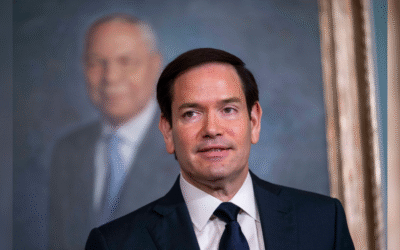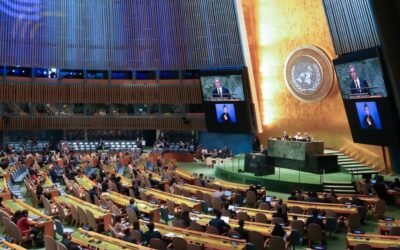WASHINGTON, D.C. —- Germany, France, and the United Kingdom have officially initiated a 30-day process to reimpose international sanctions on Iran. This action, which triggers the “snapback” mechanism of the 2015 Joint Comprehensive Plan of Action (JCPOA), is in response to what the European powers describe as “significant and deliberate” violations of the agreement. The decision comes amidst heightened international tensions and fears that the move could further destabilize the Middle East.
The crisis has its roots in the U.S. decision in 2018 to unilaterally withdraw from the JCPOA. Following the U.S. exit, Iran began a phased escalation of its nuclear program, which Iranian officials insist is for peaceful purposes. The “snapback” provision, a key element of the original accord, was designed to compel compliance by allowing any signatory to automatically restore a series of United Nations sanctions resolutions without the possibility of a veto from other member states. While the United States attempted to use this mechanism in 2020, the effort failed as Washington was no longer a party to the agreement. The European powers’ decision today appears to be timed against the expiration of this provision in October, ten years after the deal’s inception.
In a statement, U.S. Secretary of State Marco Rubio welcomed the European action, stating, “The United States remains available for direct engagement with Iran,” and that the activation of snapback “does not contradict our earnest readiness for diplomacy, it only enhances it.”
The European powers have outlined three conditions that could delay the sanctions for six months: Iran must resume direct talks with the U.S., restore full cooperation with the International Atomic Energy Agency (IAEA), and disclose the new location of its heavily enriched uranium. However, analysts believe these conditions are challenging for the Iranian leadership to accept. There is a deep-seated sentiment in Iran that past talks were a “ruse” and that a lack of security guarantees from the U.S. and Israel makes a return to negotiations difficult. Furthermore, Tehran suspended full cooperation with the IAEA after the watchdog failed to condemn previous military strikes on Iranian facilities, and it fears that disclosing the location of its uranium stockpiles would only make them a “blinking target” for future attacks.
The activation of the sanctions has already had a tangible impact, with the Iranian rial experiencing a sharp fall and creating a “psychological shock” to the economy. The UN sanctions, which include an arms embargo, are expected to further undermine confidence in the Iranian economy and could enable other countries to impose their own unilateral sanctions. This latest development underscores a perceived shift in European policy towards Iran, with many observers noting a more “hawkish” stance since President Trump’s return to office.
You May Like To Read:




























